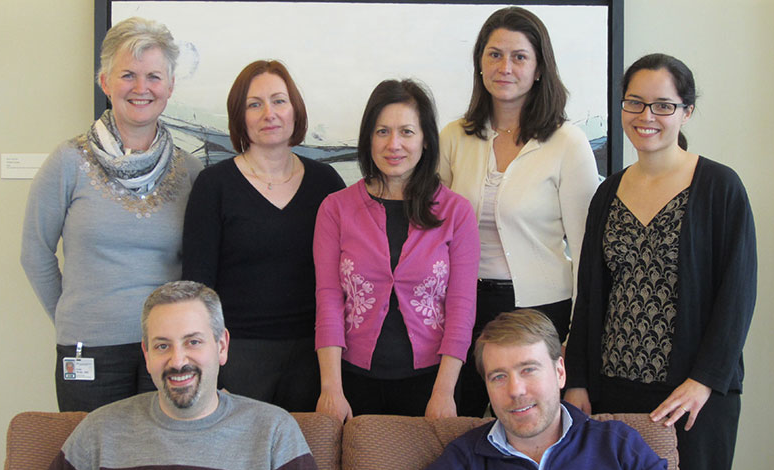The Center for Molecular Epidemiology is an Institutional Development Award (IDeA), funded by the National Institutes of General Medical Sciences, now in its second phase, that is transforming the research capacity at Dartmouth's Geisel School of Medicine by stimulating high impact research, and translating cutting-edge approaches to enhance human health discoveries. The five-year Centers of Biomedical Research Excellence (COBRE) grants support thematic, multidisciplinary centers that augment and strengthen institutional biomedical research capacity.
In the Center for Molecular Epidemiology, promising investigators carry out innovative molecular epidemiology research surrounding the central themes of:
1) Applying state-of-the-art scientific discoveries and technologies to address major health concerns;
2) Identifying early indicators of disease pathogenesis; and
3) Exploring common pathways of disease etiology and progression.
"I am very excited that Dartmouth has received this award," said Duane Compton, PhD, senior associate dean for research and director of the Cancer Mechanisms Research Program. "It will allow us to build a center devoted to understanding how environmental exposures combine with genetic backgrounds to impact human health."
"It also recognizes the scientific strength and mentoring abilities of Dr. Margaret Karagas who has been instrumental in developing this program at the Geisel School of Medicine."
Geisel School of Medicine and Dartmouth College researchers lead projects targeting emerging public health issues that will inform early prevention and changes in practice. Phase II was funded in 2018.
"We have an extraordinarily talented group of early career faculty conducting state-of-the-art epidemiologic research," said Margaret Karagas, PhD, professor of epidemiology, and Director of the Center. "Epidemiology is becoming increasingly valued for its contribution to illuminating the causes, and in turn, prevention of human disease. We hope this new infrastructure will serve not only the institution, but the region and beyond."
